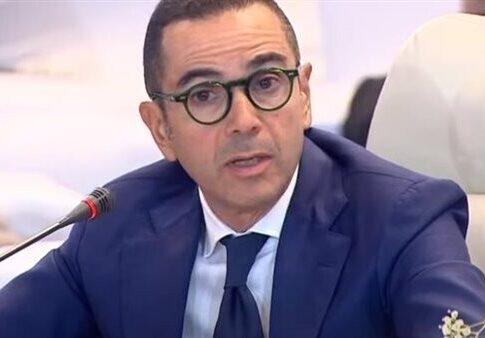Egypt is preparing to launch a comprehensive 10-year national investment map within the next three months, according to an official statement released following a recent Cabinet meeting chaired by Prime Minister Dr. Moustafa Madbouly.
The strategic plan, presented by Minister of Investment Hassan El-Khatib, seeks to unify investment planning across government sectors, introduce structural reforms, and foster a transparent, investor-friendly environment that can catalyze both foreign and domestic investments. “We are building an integrated ecosystem that delivers confidence, clarity, and competitiveness,” El-Khatib stated, emphasizing the importance of sound monetary policies, fiscal discipline, and open trade frameworks to boost exports and reduce Egypt’s persistent trade deficit.
The investment strategy outlines a wide array of high-impact, fully licensed projects across key sectors including renewable energy, tourism, healthcare, industry, information technology, agriculture, education, and water resources. Each ministry is tasked with developing detailed project portfolios—complete with approvals and licensing—to be promoted through Egypt’s global commercial and diplomatic network.
Key Sector Highlights:
- Renewable Energy: Egypt aims to add 30 MW of new renewable energy capacity and attract up to $100 billion in green energy investments.
- Tourism: Plans include building 120,000 new hotel rooms, effectively doubling capacity across various governorates.
- Healthcare: Aiming to expand hospital bed capacity by 140,000 units under the national health insurance system, with targeted investments of $30 to $40 billion.
- Industry: Egypt will seek to attract 10 multinational industrial players with project values between $1 and $3 billion each, supported by government incentives.
- IT Sector: Focused on attracting investment in data centers, semiconductors, electronics, and software, with projections of $10 to $30 billion in water desalination infrastructure.
The plan is not just about numbers—it’s about governance. A new central administration under the General Authority for Investment and Free Zones (GAFI) will oversee the coordination of investment initiatives across 64 government entities and more than 70 private-sector contributors. Over 1,000 projects are already mapped.
To strengthen the strategy’s global appeal, Egypt is integrating artificial intelligence tools and digital transformation to make the investment map interactive, data-driven, and easier to navigate for investors.
Analysts believe the timing is crucial. With global capital flows realigning post-COVID and amid geopolitical uncertainty, emerging markets like Egypt are positioning themselves as attractive alternatives. “This roadmap aligns well with global investor appetite for infrastructure, green energy, and digitization,” said Nour El-Din Khalifa, a Cairo-based economist. “What matters now is how quickly Egypt can move from planning to execution—and ensure regulatory consistency.”
According to government sources, a global promotional campaign will soon launch, spearheaded by Egypt’s commercial attachés worldwide. The government also hinted that the confirmed project list may be annexed as an official addendum to existing trade and investment agreements to ensure legal clarity and institutional commitment.
As Prime Minister Madbouly concluded in the Cabinet session, “The real measure of success will be how many of these projects convert into real foreign direct investment—and how they uplift the economy.”


